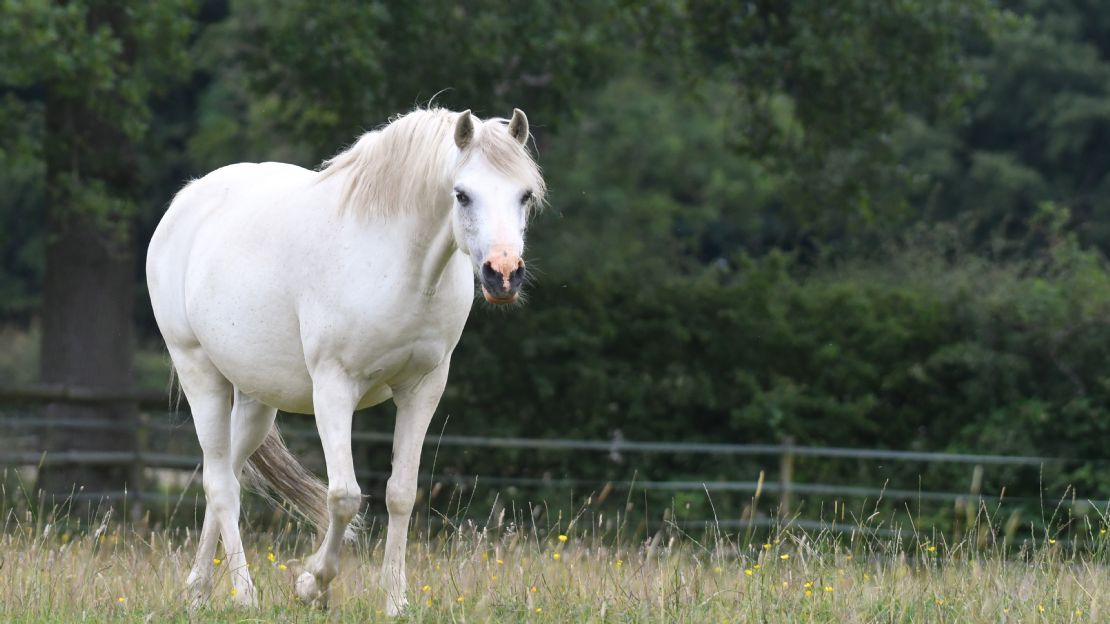Why do we recommend feeding horses from ground level?
How does the horse's jaw work? What happens if horses eat above ground level? Read the article to learn more...

Despite being well into the summer months, laminitis cases are still high and we have been speaking to a number of concerned owners who are experiencing laminitis for the first time. The warm and wet weather we have forecast is likely to trigger further flushes in grass growth and so monitoring overweight or metabolic equines is essential.
A weigh tape daily and record readings to quickly spot changes. At this time of year, hard ground also poses a problem as it increases the risk of concussion. Persistent concussive forces in the feet may trigger laminitis in those who are not usually at risk. This includes working and competition horses, those who are a good, healthy weight and breeds that are less prone to laminitis - not just native ponies! Keep a close eye on horses living out 24/7 and those competing on grass for any signs of foot soreness and if concerned, we would always suggest speaking to your vet immediately to confirm the cause. Stabling for some of the day on a deep bed avoiding turnout on fields that have become hard and rutted or turning out on a surface may offer some relief for sore hooves. There are a number of ways you can support your horse nutritionally:
Does feeding hay in summer cause laminitis? Yes, hay is an important part of your horse's intake and can contribute to laminitis. You can reduce sugar in the diet by soaking hay - a short soak of 30-60 minutes immediately prior to feeding is ideal. This is particularly important in summer months as wet hay in warm temperatures greatly increases the risk of the hay fermenting and acidifying which can upset the sensitive digestive tract.
Remove sugary fruit, carrots and molassed treats from the diet and low sugar treats such as Lucie Mints instead.
For hard working horses needing energy in their diet, choose naturally low sugar options made from lucerne such as Build & Shine or Lucie Nuts.
Graze on longer, more mature grass where possible. Sugar is stored in the base of the plant whereas the top few inches of "standing hay" will be typically much higher in fibre. This requires more chewing and will help horses feel fuller. Short, closely grazed grass becomes stressed, stores sugar and they will need to eat a lot more of it to fill them up!
To increase bulk in the diet and provide additional forage options, Organic Lucie Stalks can be fed generously, damped down by the bucketful, or Lucie Brix for those with good dentition. Soaked HayCare or Lucie Fibre Cubes are suggested for older horses or as a hydrating option on hot days. These can all be fed in the stable or the field.
MetaSlim is suggested as part of a calorie-controlled diet to support those that need to lose weight, but is just as relevant for horses in good condition to optimise blood levels and aid insulin effectiveness.
For more specific or tailored advice, please do not hesitate to contact our Feed Line on 01728 604 008, email info@simplesystem.co.uk or complete our online form and our Feed Advisors will be happy to help.
How does the horse's jaw work? What happens if horses eat above ground level? Read the article to learn more...
We're thrilled to be adding an exiting new event to the calendar for 2026!
Horses’ teeth change throughout their lives - they are continually growing and continually wearing, as they chew and grind their grazing and forage.